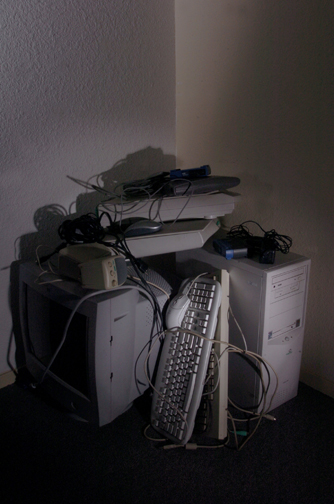
Plan is to consider vendors’ ‘take back’ policy before awarding
contract
Faced with finding cost-effective and environmentally friendly
ways to reuse, recycle or dispose of Santa Clara County’s old
electronic equipment, Supervisors this week approved a new policy
for the handling and disposal of electronic waste.
Plan is to consider vendors’ ‘take back’ policy before awarding contract
Faced with finding cost-effective and environmentally friendly ways to reuse, recycle or dispose of Santa Clara County’s old electronic equipment, Supervisors this week approved a new policy for the handling and disposal of electronic waste.
The policy creates standards for the purchase, management and disposal of equipment such as computers, fax machines, printers and telephone equipment, helping to minimize the environmental impact.
The new policy will be incorporated into how the county does business with its vendors. The policy criteria will be written into the county’s request for proposals (RFPs), requiring contract bidders to address “take back” of electronic equipment for reuse, recycling and/or disposal. The county will encourage a “reuse” of equipment that is in good repair, a strategy that provides those products to groups such as schools or nonprofits.
The county will support the effort of other governmental agencies and local businesses to stimulate a consumer demand for product stewardship and producer take back.
“I proposed that the county develop an e-waste policy because we have an obligation to be environmentally responsible for the community in which we live,” said Supervisor Liz Kniss, District 5. “This policy is more extensive than those found in most local governments and we expect that as others begin to seriously examine the effect of e-waste, many may opt to emulate this program.”
The policy will be folded into product purchases, as it will state preference for environmentally preferable equipment. Preferable equipment is easier to upgrade, contains less toxic pollutants, contains more remanufactured or recycled components, more energy efficient, and reduces the generation of hazardous waste during manufacturing and use.
“The policy ensures not only that the county takes appropriate steps to recycle and reuse equipment, but that our vendors and recyclers follow the same guidelines to protect the environment,” Kniss continued.
The county’s “preferred standards” include equipment that is designed for improved environmental and human health, promote energy efficiency and improve user health, ensure safe and environmentally-sound end-of-life management and manufacturer responsibility.
Additionally, the policy bans recycling vendors from shipping the county’s old electronic equipment to other countries where the environment may be polluted by toxic materials from the equipment when it is taken apart.
Equipment may be disposed of, recycled or reused only in the United States. Any e-waste that is exported to other countries must be shredded to less than three inches before leaving the country.
The next step will be to develop criteria to determine what equipment falls under “preferable” product category.








